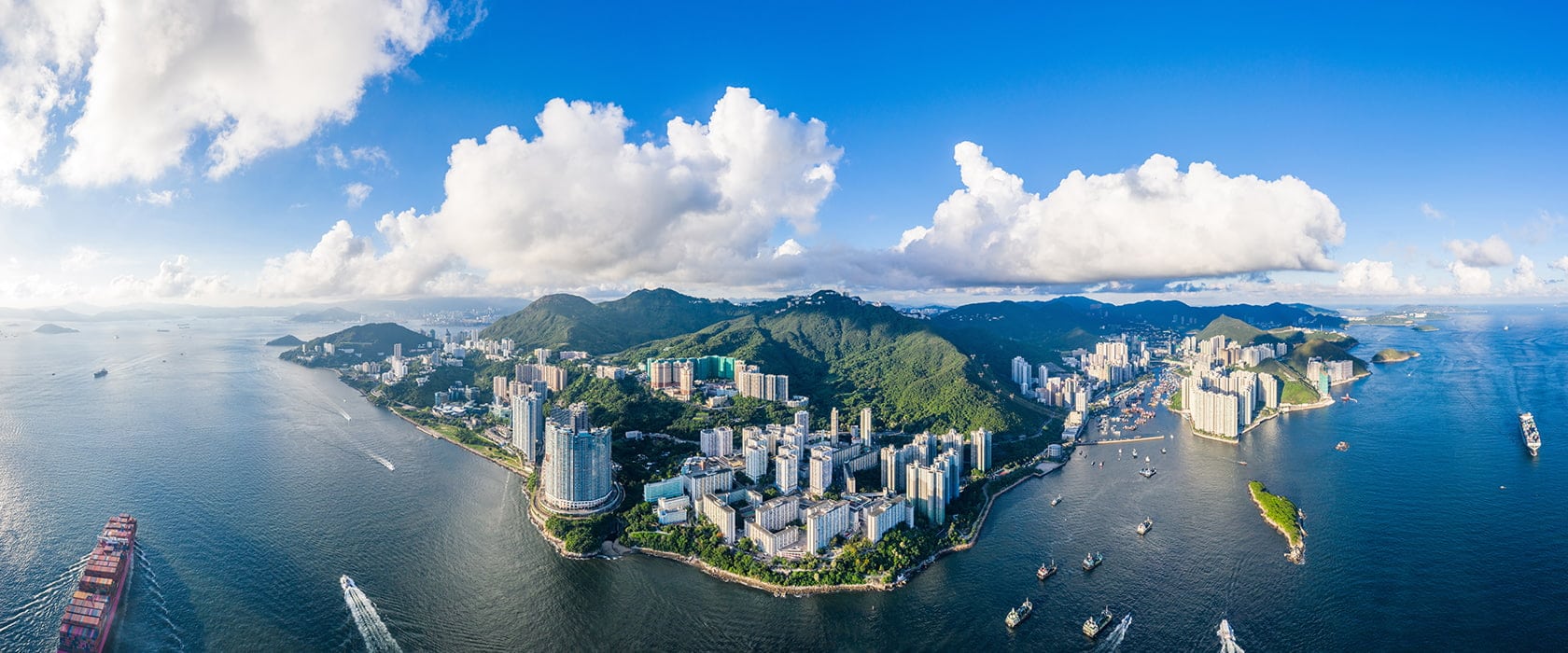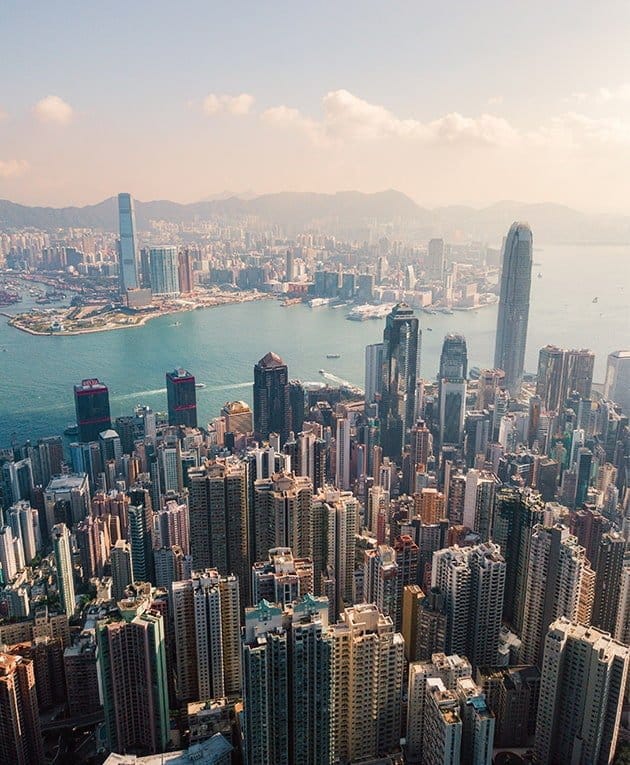-
Popular search terms
A Comprehensive Guide to Studying in:
Hong Kong

Hong Kong is a densely populated global financial center that – through a combination of low taxes and an international financial market – has established one of the strongest economies in the world relative to its size. As a result of a history of both British and Chinese influence, the region’s two official languages are English and Chinese, making for a unique mix of dialects and cultures. This blend of East and West also permeates the region’s architecture, where towering skyscrapers (Hong Kong has more than anywhere else in the world) stand side-by-side with British- and Chinese-style structures.
In general, each one of Hong Kong’s universities has a primary language of instruction which is either Chinese or English. However, no matter the language, the region’s universities are world-class and appear in the top 100 universities worldwide. It certainly makes Hong Kong one of the most appealing places to study in the world: a destination that can offer a plethora of English-language programs, world-renowned universities, and access to the fastest-growing economy in the world.

Frequently Asked Questions
FAQ
Did You Know? Fun Facts About Hong Kong
- 1 Notable firms in Hong Kong include Cathay Pacific, Esprit, FedEx, AXA Asia, and Estée Lauder.
- 2 Hong Kong is one of the top 10 cities in the world with the most billionaires.
- 3 Hong Kong has twice as many skyscrapers as New York City.
- 4 Hong Kong has one of the highest number of restaurants and cafés per capita – as well as the cheapest Michelin-starred food in the world!
- 5 Hong Kong has one of the highest average intelligence quotients in the world, with an average IQ of 105.7.
Which Visas & permits do i need in Hong Kong
International students need to apply for a student visa if they have been accepted into an MBA in Hong Kong. You will need to provide documents, including a passport, ID card, a passport-sized photo, a proof of funding. It normally takes six weeks to process a visa application. In most cases, your student visa is valid for one year. If your study program is longer than one year, you can apply for the visa again.
International students in Hong Kong are not allowed to take up any employment, paid or unpaid. However, rules are becoming more relaxed when it comes to internships and part-time employment.
Banking in Hong Kong
If you plan to study or work in Hong Kong, you’re going to need a Hong Kong bank account. Some of the main banks in Hong Kong include the Bank of China, Citibank Hong Kong, Dah Sing Bank, and HSBC Hong Kong. To open a bank account, you’ll need to provide documents like your passport or your Hong Kong ID card, proof of address, and a valid visa.
Most banks offer the option to open a bank account online, while some will require you to visit the bank in person. The fee to maintain a bank account in Hong Kong typically ranges between HK$50-$150 (US$6-$19).
What do I need to know about healthcare in Hong Kong
Hong Kong has the highest life expectancy in the world (85 years), an indication of its outstanding quality of healthcare.
While health insurance is not mandatory for international students, some education institutions might require you to purchase accident, hospitalization, medical expenses, and evacuation coverage before you begin your MBA in Hong Kong. The government provides all public health services free of charge – or in some cases for a small fee. Many universities provide comprehensive healthcare to students on-campus.
Housing options for students in Hong Kong
There are different types of student accommodation on offer in Hong Kong, including on-campus and off-campus accommodation. To save money and traveling time, on-campus accommodation is the best fit for you. Fees for on-campus living typically range from HK$5,000 (US$630) to HK$15,000 (US$1,900) per semester.
Off-campus accommodation includes student hostels and private rental apartments. Living off-campus is more expensive than on-campus, ranging from HK$8,000 (US$1,000) to HK$15,000 (US$1,900) per month depending on the size, location, and type of accommodation. Note that accommodation in the city or close to the university campus is often difficult to secure and more expensive than other options. Sharing an apartment or flat with roommates can help you save money.
What are the public transport options in Hong Kong
Hong Kong has a modern public transportation system that includes metros, trams, mini-buses, taxis, and ferries. The MTR (Mass Transit Railway) has 98 stations that connect major centers and even borders connecting to Mainland China.
The most convenient option might be to get an Octopus Card, which can be used on all types of public transport (excluding taxis and red mini-buses), as well as in many convenience stores and fast-food restaurants. The Octopus Card must be preloaded with a minimum of HK$50 (US$6).
How much does a Big Mac cost in Hong Kong
The Big Mac Index was invented by The Economist in 1986 as an informal way of measuring the purchasing power parity (PPP) between two currencies. The price of a Big Mac in Hong Kong is HK$22 (equivalent to US$2.80, EUR€2.65, and JP¥358). For US$50, you can buy 17 Big Macs.
Study in Hong Kong recommends budgeting between HK$30,000 and HK$50,000 (US$3,800 to US$6,400) per year for general living costs, like food, leisure, and transportation (excluding rent). Curious how much a Starbucks coffee or a movie ticket costs in Hong Kong? Study in Hong Kong provides this handy breakdown of how much things cost in Hong Kong.